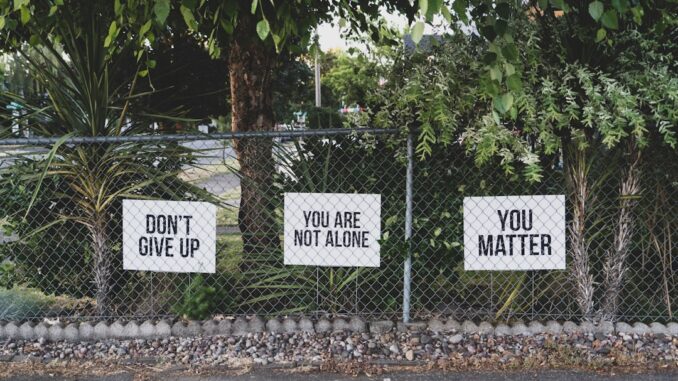
Summary
This article provides a comprehensive guide to navigating addiction treatment options. It explores various therapies, support systems, and medications, offering practical advice for individuals seeking recovery. The article emphasizes the importance of personalized treatment plans and offers actionable steps for a successful recovery journey.
** Main Story**
Okay, so, overcoming addiction? Yeah, it’s tough, no question about it. But it’s absolutely achievable, even if it doesn’t always feel that way, and I’m here to give you the lowdown on picking the right treatment. Because let’s be real, one size doesn’t fit all.
Facing the Truth and Making a Promise
First things first: you gotta be real with yourself. Like, really real. Acknowledge the problem, yeah, but more than that, commit to changing. It’s not enough to just say it; you gotta feel it. This means ditching the denial and being willing to ask for help. It’s probably the hardest step, to be honest, but it’s the most important. I remember when my cousin went through this. He kept saying he was fine, that he could stop anytime. But it wasn’t until he admitted he was in over his head that he actually started to get better.
Understanding Your Options
So, what’s next? Well, it’s time to get informed. Here’s a breakdown of what’s out there:
-
Detox: Think of this as hitting the reset button, getting the substance out of your system. It’s medically supervised, so you’re safe while your body goes through withdrawal. Let’s be clear, though: detox isn’t the cure. It’s just the first hurdle.
-
Behavioral Therapies: These are designed to help you rewire your brain, basically. You learn to change the way you think and act around drugs or alcohol. You’ve got a few flavors to choose from:
- CBT (Cognitive Behavioral Therapy): This one helps you spot and change the negative thoughts driving your addiction. For example, CBT can help with recognising how social pressure triggers drug use, and address that.
- DBT (Dialectical Behavior Therapy): It’s all about coping skills here – managing emotions, improving relationships, and dealing with stress. Think of it as building a mental toolbox.
- MET (Motivational Enhancement Therapy): It’s about getting you motivated to change. What do you want your life to look like? How can treatment help you get there?
- Family Therapy: Addiction doesn’t just affect the individual; it impacts the whole family. This type of therapy helps everyone communicate better and heal together.
-
MAT (Medication-Assisted Treatment): This involves using meds to curb cravings, ease withdrawal, and prevent relapses. It’s often used for opioid, alcohol, and nicotine addiction, and it’s most effective when paired with behavioral therapies and counseling.
-
Treatment Programs: Programs come in various levels of intensity, it really depends on what you need:
- Inpatient Treatment: This is like rehab where you live at the facility. 24/7 care and support is there.
- Residential Treatment: Similar to inpatient, living at a facility where you cut yourself off from the outside world to focus on your health. But, it can be expensive and disruptive to your life, depending on the length.
- PHP/IOP (Partial Hospitalization/Intensive Outpatient Programs): These are structured programs, but you get to live at home. So it’s a good middle ground.
- Outpatient Treatment: The most flexible option. Fewer hours per week, which means you can still go to work or school. However, this requires a lot of self discipline to manage, and may not suit more difficult cases of addiction.
Building a Safety Net
You can’t do this alone, nor should you. You need a strong support system:
- Support Groups: AA, NA, SMART Recovery, all that jazz. It’s about connecting with people who get what you’re going through. Sharing experiences and knowing you’re not alone is huge.
- Family and Friends: Lean on the people you trust. Let them be your cheerleaders. And yeah, maybe consider family therapy to smooth things over and get everyone on the same page.
- Therapists and Counselors: Professional guidance is invaluable. They can help you dig deep, address underlying issues, and develop coping strategies. Don’t underestimate the power of talk therapy, you know?
Getting Equipped for the Long Haul
It’s not just about getting clean; it’s about staying clean. How do you do that?
- Stress Management: Find healthy ways to chill out. Exercise, meditation, nature walks, whatever works for you. Stress is a major trigger, and you’ve got to have an outlet.
- Trigger Awareness: Figure out what sets you off – people, places, situations – and avoid them like the plague. Plan ahead and have strategies in place for when you can’t avoid them. Maybe it’s a certain bar you used to frequent, or someone you used to use drugs with, right?
- Relapse Prevention: Develop a plan for when cravings hit. What are you going to do? Who are you going to call? Have it all mapped out in advance. This is a critical point; it could save you.
- Self-Care: Take care of yourself, inside and out. Good sleep, healthy food, regular exercise. When you feel good physically, you’re better equipped to handle the mental challenges.
Choosing Your Adventure
So, how do you pick the right treatment path? It really comes down to you. What are your needs? What are your preferences? What resources do you have available? Consider the severity of your addiction, any mental health issues you might be dealing with, your insurance coverage, and the level of support you need. Talk to a doctor or addiction specialist. Get their input, and do your research.
Listen, recovery is a marathon, not a sprint. There is no perfect plan, that’s just life isn’t it. Be patient with yourself, celebrate every victory, and don’t be afraid to ask for help when you stumble. With commitment and support, you can do this. You can build a life free from addiction. And trust me, it’s worth it.


Be the first to comment